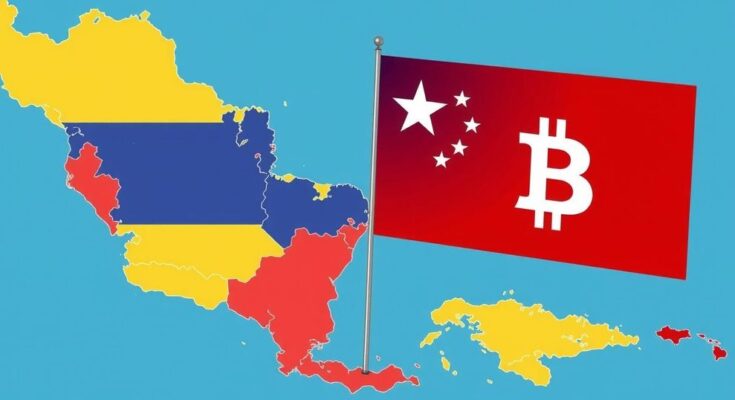Bolivia’s cryptocurrency market is flourishing after lifting a blanket ban, with transaction volume surging 112%. The Central Bank of Chile has rejected Bitcoin for reserve assets due to non-compliance with IMF standards. Bolivian attorneys propose using Tether’s USDT to strengthen the economy amid dollar scarcity, aiming to link it to the national currency for pricing flexibility.
In the latest update on crypto developments in Latin America, Bolivia is experiencing significant growth in its cryptocurrency market following the repeal of a sweeping ban. The Central Bank of Bolivia has noted a remarkable increase in digital asset transactions, with a rise of 112% post-repeal. Conversely, the Central Bank of Chile has explicitly rejected the inclusion of Bitcoin as a reserve asset, citing compliance issues with international financial standards. Additionally, Bolivian legal experts are advocating for the adoption of Tether’s USDT to facilitate economic recovery in a dollar-deprived environment. This proposal seeks to tie the stablecoin’s value to the Bolivian currency, potentially revitalizing stalled economic projects.
The landscape of cryptocurrency in Latin America is changing rapidly, especially in Bolivia, which has shifted from a prohibitive stance to one of increased acceptance. Following the lifting of a previous ban, the Bolivian cryptocurrency market is witnessing dynamic growth with a notable number of citizens engaging in digital asset trading. On the other hand, Chile remains cautious, as its central bank underscores the challenges that cryptocurrencies face in meeting the criteria for reserve assets as defined by the IMF. Both nations’ approaches highlight the complexities of cryptocurrency integration into their respective economies, with Bolivia exploring innovative solutions to enhance economic flexibility.
In summary, Bolivia is witnessing a surge in its cryptocurrency market following the repeal of a restrictive ban, with significant increases in digital asset transactions reported. In contrast, the Central Bank of Chile remains resolute in its stance against cryptocurrencies as reserve assets due to compliance requirements. Furthermore, the proposal by Bolivian attorneys to utilize USDT indicates a proactive effort to address economic constraints and stimulate growth by linking digital currency value to the national economy.
Original Source: news.bitcoin.com




